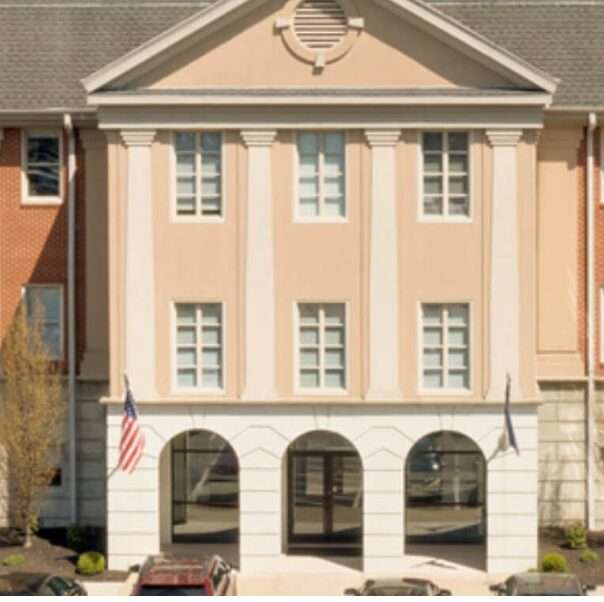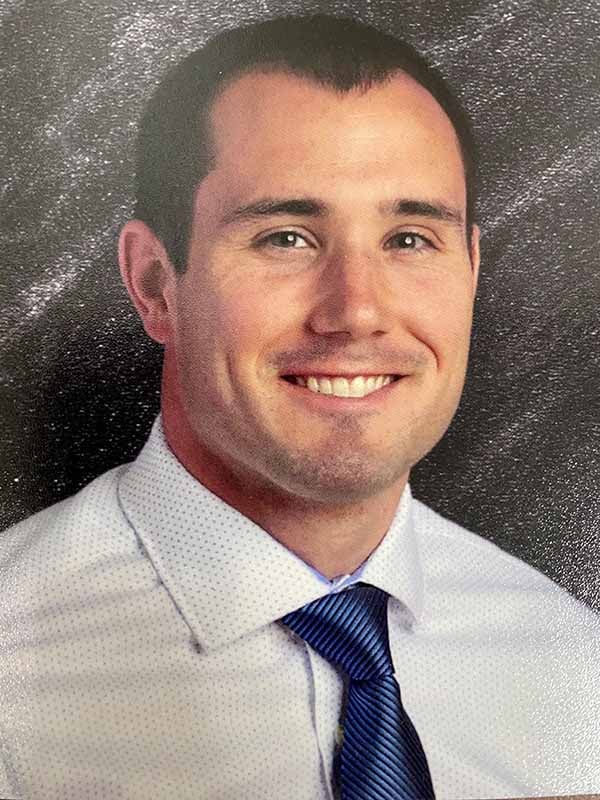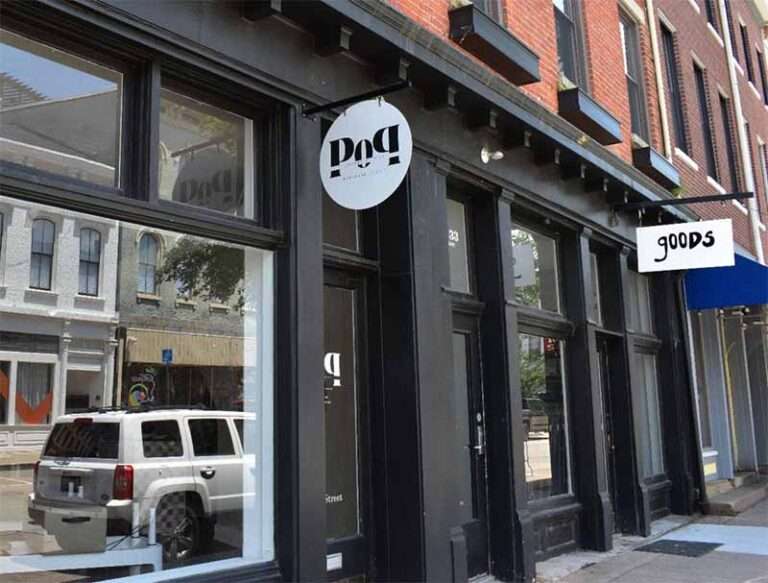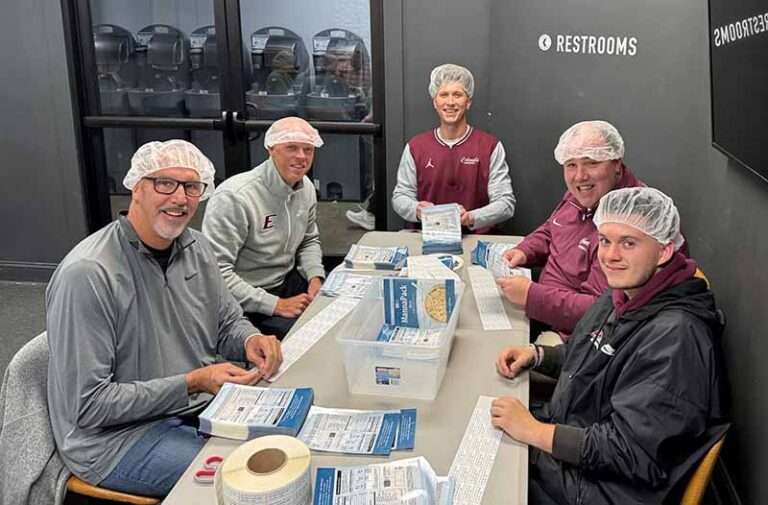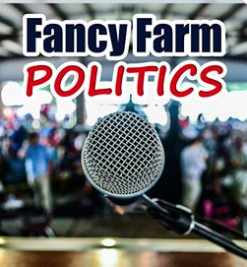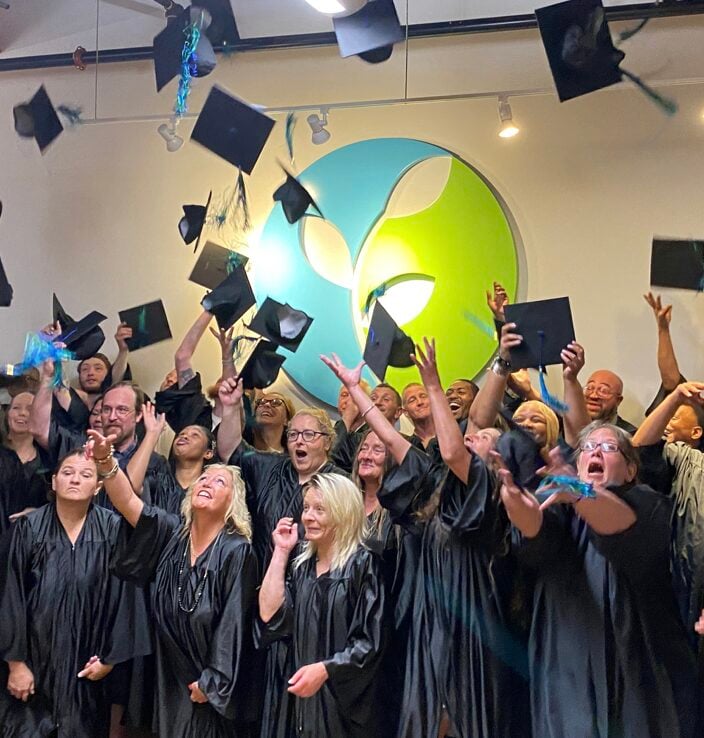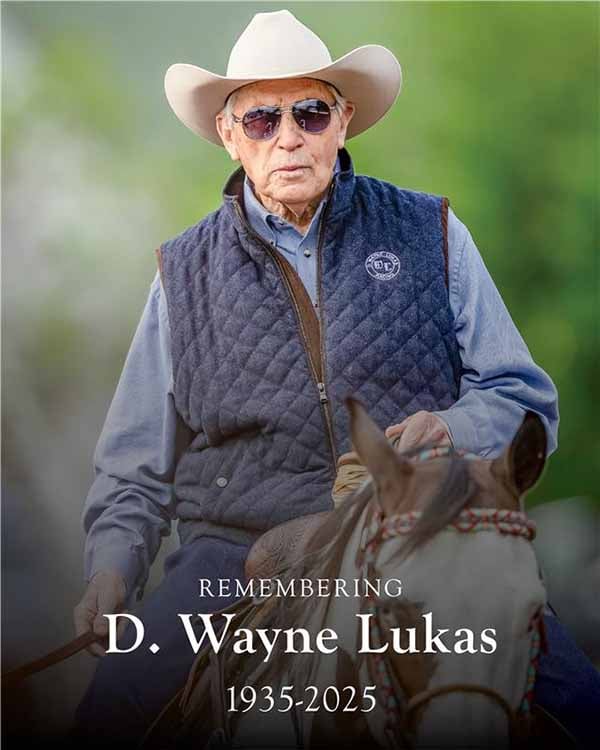If you live anywhere in the Richmond area or have been a keen observer of college sports in Kentucky for several decades, the name Karl Park is probably familiar. As Eastern Kentucky University’s sports information director from 1970 until he retired from that role in 2004, his dedication to EKU and quality service to the sporting public garnered him a Colonel’s share of awards along the way, not the least being the Lifetime Achievement Award from the national organization of sports information directors and membership in both EKU Hall of Fame and the Ohio Valley Conference Hall of Fame. He’s always been respected for his work and considered one of the genuinely good guys amongst his peers.

These days, besides working on some projects for EKU as a part-time member of the athletic staff, Karl has embraced a new interest in his free time, the Thoroughbred horse racing industry. He had dabbled in it while still SID, but there were time limitations then—not as many now.
“Instead of playing golf, I do horses,” he said. “This is my outlet.”
I recently caught up with him, a person I’ve known over four decades, to find out about his latest passion. His exuberance showed.
“I had never ridden a horse before,” explained Karl. “I had watched the Kentucky Derby, but I had no inkling or desire to get involved (with horse racing).” But when a friend and colleague, Jack Frost, traveled to Louisville to do some professional photography at the Derby in 1985, Karl sent some betting money along with him. He won with the horse, Spend a Buck, who crossed the finish line with one of the all-time best times.
“That kind of perked my interest,” said Karl. A few years later, Karl and his brother, Mike, joined with two others in partnership to buy a filly racehorse. She ran often. “The name of the horse was Dancing at the Top,” he said, “and she raced 26 times in two years. She finished first, second, or third in nine of her races.” And though overall he lost a small amount of money on the partnership when the horse was eventually sold in a claiming race, Karl was hooked, though limited by time restraints with his EKU position.
His second initiative into horsemanship took a somewhat different angle, a practice called “pin hooking,” which basically means buying young “weanlings” and training them to race, then selling for a profit. Unfortunately, Karl picked a bad period, 2001, for that kind of involvement. “That year was when the ‘mare reproduction loss syndrome’ (later found to be caused by tent caterpillars) occurred. I lost about $3000 and we all suffered through that.”
As discouraging as that experience was, he wasn’t ready to give up on being, at least, a small part of the equine industry.

In 2005, after Karl’s retirement as EKU’s SID and while supporting his son, Drew’s, high school baseball participation, a friend reached out to Mike and him about a possible involvement in the breeding aspect of racehorses. The two brothers were ready to give another try. “We bought a mare,” said Karl. “She was pregnant to this nice stallion…(but) the farm manager called and said that we’d had ‘bad luck.’ The foal had died at birth.” The mare later gave birth to two fillies, and they were sold.
But just when Karl was hoping that the bad luck with horses would lessen for a while, his breeding mare met tragedy. “We had her in a paddock with three other barren mares,” explained Karl. One of the other mares became “spooked” and kicked Karl’s foaling mare in the diaphragm, basically choking her to death. “It was awful…and on New Year’s morning,” he said, wistfully.
Maybe exclusively sticking to college sports would make sense, but Karl Park wasn’t ready to let go of the hold such powerful, beautiful creatures had on him.
Keith Kleine, an official of the American Association of Equine Practitioners, Lexington, reached out to Karl and others in Richmond about a partnership to buy another racehorse. They agreed to join, and they bought a horse named Risetotheoccasion, called that in tribute to a University of Louisville basketball player who had overcome a severe injury.
The horse did well, winning about $132,000, and eventually over $280,000, but that was after the partnership entered Risetotheoccasion into a claiming race, and he was taken for $65,000. “I was very disappointed that he was claimed,” said Karl. “Three of the four partners from Richmond didn’t want to do it.”

The fifth opportunity for equine involvement came three springs ago, according to Karl. “Churchill Downs formed what they called the Churchill Downs Racing Club (CDRC),” he said “and the first 200 who contacted them would get in.” Along with other perks the members received, the horses would be trained by the noted and highly respected D. Wayne Lukas.
The CDRC acquired a filly sired by Dialed In, a horse finishing seventh in the 2011 Kentucky Derby. It was called Dial Me, and it was followed by another filly, called Party Club. “In late November (2017), we got in on Rare Form,” said Karl. “Recently, Party Club was put in a claiming race. She won but she got claimed, and I now have part ownership in two horses.”
And so it goes. It has been a mixed bag of successes and disappointments in Karl’s equine world experience, but, he said with a grin, “It’s a lot of fun, but the odds are not very good that you’ll come out on top. Some of the horses we’ve had have that ‘we’ve got something here’ about them and others…you just hope they don’t go to sleep on the track. The competitiveness is just not there.”
But despite the challenges, look for Karl Park to, at the very least, keep participating in a small way in the Thoroughbred sport for a while. “It’s rewarding,” he said. “I always like going to the track, especially when one of our horses are running…and there’s always that dream of ‘catching lightning in a bottle.”
His many friends down at Richmond and EKU would rejoice with him also.
Steve Flairty is a teacher, public speaker and an author of six books: a biography of Kentucky Afield host Tim Farmer and five in the Kentucky’s Everyday Heroes series, including a kids’ version. Steve’s “Kentucky’s Everyday Heroes #4,” was released in 2015. Steve is a senior correspondent for Kentucky Monthly, a weekly KyForward and NKyTribune columnist and a member of the Kentucky Humanities Council Speakers Bureau. Contact him at sflairty2001@yahoo.com or visit his Facebook page, “Kentucky in Common: Word Sketches in Tribute.” (Steve’s photo by Connie McDonald)







